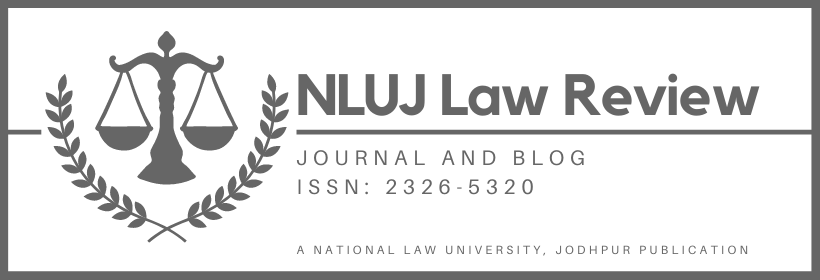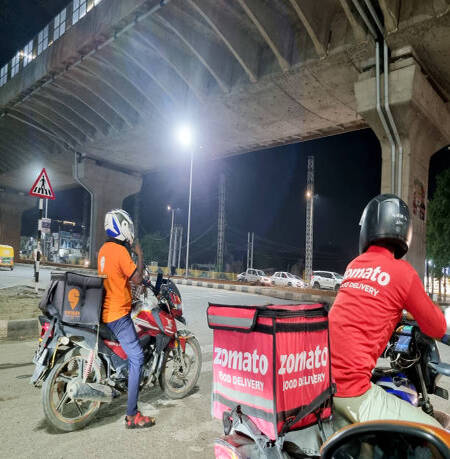The Competition Commission of India (“CCI”) is the statutory authority established under the Competition Act, 2002 (“Competition Act”) to eliminate practices which have an adverse effect on competition in the domestic market. To achieve this objective, the CCI has been vested with wide-ranging powers to investigate, adjudicate and impose hefty penalties on parties indulging in anti-competitive activities, prohibited under the Competition Act. However, in recent times, a few orders of the CCI to investigate accused parties have been stayed or set aside by separate High Courts under their extraordinary jurisdiction derived from Article 226 of the Constitution of India.
The aforesaid development is particularly concerning since an order of the CCI to conduct an investigation has been specifically excluded by the legislature from the scope of appealable orders under Section 53A of the Competition Act. Nevertheless, accused parties are increasingly approaching the High Courts for impugning orders of investigation to delay prosecution or evade the jurisdiction of the competition regulator. In this blog, the author endeavours to analyse the scope of permissible judicial intervention under Article 226 in antitrust investigations and highlight the importance of proactive action in competition-related inquiries.
Background
The CCI has faced roadblocks in its objective to investigate parties for anti-competitive conduct since its inception. To cure this situation, the Supreme Court had early on in Competition Commission of India vs. Steel Authority of India Ltd. and Ors. (“Steel Authority”) ruled that a CCI order to the director-general to cause investigation into an accused party under Section 26(1) of the Competition Act was not appealable to the appellate authority. The Court reasoned that the subject order was administrative in nature and did not result in civil consequences for any party to the lis. Therefore, a challenge to such an order would not ordinarily lie before it. However, over the years, the Supreme Court and several High Courts have deemed it fit under their extraordinary jurisdiction to interfere with these orders. A cumulative reading of these decisions brings forth the following grounds on which an order to investigate may be stayed or set aside.
Lack of Jurisdiction
In 2018, the Supreme Court in Competition Commission of India vs. Bharti Airtel Limited and Ors. (“Bharti Airtel”) held that a writ petition under Article 226 impugning a direction of investigation would be maintainable on the ground of lack of jurisdiction. A case for lack of jurisdiction would only arise when the actions of an accused party are already regulated by a separate and competent statutory regulator [¶ 96, Bharti Airtel]. For example, Section 3 of the Telecom Regulatory Authority of India (“TRAI”) Act, 1997 constitutes TRAI as the regulator of the telecom sector. However, the mere existence of a separate regulator in-charge may not oust the jurisdiction of the CCI completely. The Court was cognizant of the fact that a sectoral regulator may not have a holistic view of the economy which the CCI is better equipped to fathom. Therefore, a balanced approach would be that the jurisdiction of the CCI kicks in after a sectoral regulator returns its findings on facts that a party has indulged in anti-competitive behaviour and not before.
However, the judgement of Bharti Airtel cannot mean that where a sectoral regulator exists, the jurisdiction of the CCI will take the backseat every time. Such a situation may lead to unnecessary delay and cause irreparable harm to the relevant market in question. For example, recently the Karnataka High Court in Amazon Seller Services Private Limited v. CCI[W.P 3363 of 2020, Order dated 14.2. 2020, Karnataka High Court] stayed the antitrust investigation against the accused party stating lack of jurisdiction of CCI among other reasons. The Court held that since the actions of the accused party were already under investigation under the provisions of the Foreign Exchange Management Act, 1999 (“FEMA”) for “deep discounting”, the dicta of the Supreme Court in Bharti Airtel would squarely apply.
In the opinion of the author, the aforesaid reasoning of the Court is inaccurate for three reasons. First, a probe by the authority under FEMA and a probe by the CCI serve separate and distinct purposes. The authority under FEMA in the present case would adjudicate upon whether the activities and investments of the accused parties which enable them to provide deep discounts to preferential retailers are legal in light of the present FDI norms. On the other hand, the CCI in the present case would adjudicate whether the practice of deep discounting by the accused parties amounts to anti-competitive conduct in the e-commerce market. Second, the decision of the Supreme Court in Bharti Airtel is not a ‘one size fits all’ precedent for parallel investigations vis-à-vis antitrust investigations. In Bharti Airtel, the Supreme Court’s decision stemmed from the fact that Section 11 of the TRAI Act, 1997 recognises “measures to facilitate competition” as an important function of the telecom regulator. Therefore, it was a fit regulator to return findings on facts whether an activity is anti-competitive. Such a function/objective is not statutorily endowed on the authority under FEMA. Third, the High Court erred in not noticing Section 62 of the Competition Act which expressly provides that the Act is, in addition to and not in derogation of the provisions of any other law. The Delhi High Court in Monsanto Holdings Pvt. Ltd. and Ors. vs. Competition Commission of India and Ors. (“Monsanto”) laid down that the legislative intent brought forth from this provision is that the Competition Act is in addition to other laws and not in substitution thereof. Therefore, the Karnataka High Court decision to stay the investigation of the CCI may require re-examination.
While adjudicating on the point of appropriate forum apropos competition matters, the High Courts should examine the objectives and functions of the other statutory regulators, the nature of their inquiries and investigations, the types of reliefs they can grant and whether such reliefs would be practical in competition matters. The Courts should also note that the decisions of the CCI are in rem, while decisions of some regulators may be in personam. The decisions in personam would not have the desired ripple effect in the affected market at large and therefore adjudication by the CCI may be more appropriate. A similar approach was followed by the Delhi High Court in Monsanto where the jurisdiction of CCI was upheld in ‘patent’ matters. However, the decision is currently pending appeal before a division bench of the High Court.
Test Laid Down in Google v. CCI
A petition under Article 226 impugning a CCI order of investigation may also be maintainable where (1) no prima facie case is made out from the allegations or allegations are improbable, and (2) where the information/allegation filed is mala fide. The Delhi High Court in Google Inc. and Ors. vs. Competition Commission of India and Ors. approved the aforesaid grounds for the challenge on the basis that an investigation under the Competition Act is as invasive as an investigation by the police under the Criminal Procedure Code, which is not immune from challenge.
While the author agrees with the first ground for the challenge, a petition under Article 226 may not lie on the ground of mala fide allegations in competition law cases for two reasons. First, the CCI has been vested with the power to conduct a suo moto investigation under Section 19 of the Competition Act. This means that the CCI can disregard the alleged mala fide information and conduct investigation on its own motion. This position has been recently re-affirmed by the CCI in Harshita Chawla v. WhatsApp Inc. Second, the Supreme Court in Samir Agrawal vs. Competition Commission of India and Ors. has held that Section 45 of the Competition Act – which allows the CCI to impose a penalty on informants submitting mala fide or frivolous information – is a satisfactory deterrent for persons filing information with ulterior motives. Therefore, the High Courts should decline to interfere with an order of investigation on this ground since an efficacious remedy for opposite parties already exists under the Act.
A challenge to an order of investigation may lie on the ground that prima facie no case was made out from the allegations/material on record. The Delhi High Court in the case of National Engineering Industries Limited vs. Competition Commission of India and Ors. observed that where the material submitted before the CCI or in the case of a suo moto inquiry, where the report of the director-general does not disclose any adverse finding against a party for any violation of the Act, an order of investigation cannot be sustained. However, the High Courts should be mindful that while examining the order of investigation on this ground, they do not adjudicate on its merits. In Bharti Airtel, the Supreme Court held that a High Court would not be competent to adjudge the validity of such an order on merits. Therefore, the High Courts should use their extraordinary jurisdiction in antitrust investigations sparingly and judiciously.
Conclusion
Freedom of trade and ease in doing business are the signs of a healthy domestic market. Elimination of unfair trade practices, therefore, becomes paramount for the growth of a healthy economy. The legislative intent from a bare reading of the Competition Act is expeditious disposal of matters as prolonged litigation would harm the market and the economy. This position has been solidified by the Supreme Court in Steel Authority and Excel Crop. Care Limited vs. Competition Commission of India and Ors. Therefore, judicial intervention in CCI investigations should be exercised only where absolutely necessary, since a delay in investigation may result in irreparable harm to a domestic market. It may also be appropriate for the CCI to invoke its powers under Section 21A of the Competition Act which allows it to take the opinion of other statutory regulators in case of overlapping jurisdiction before passing an order of the investigation. A combination of these efforts would go a long way in increasing the swiftness of antitrust investigations in India.
This article has been authored by Shivek Sahai Endlaw, student at Amity Law School, GGSIPU, Delhi.



